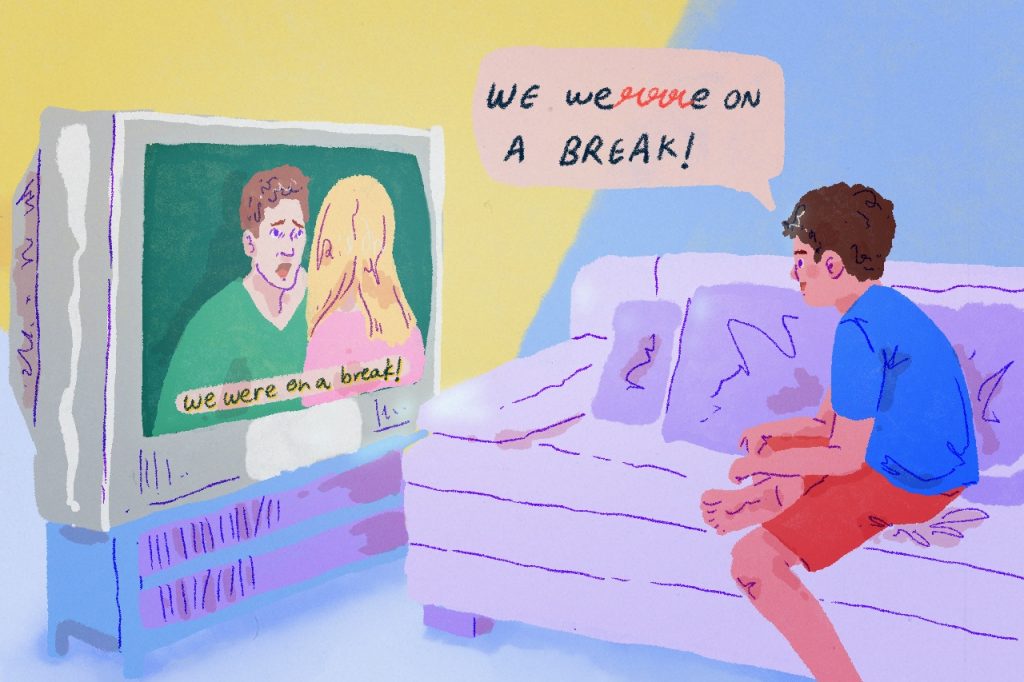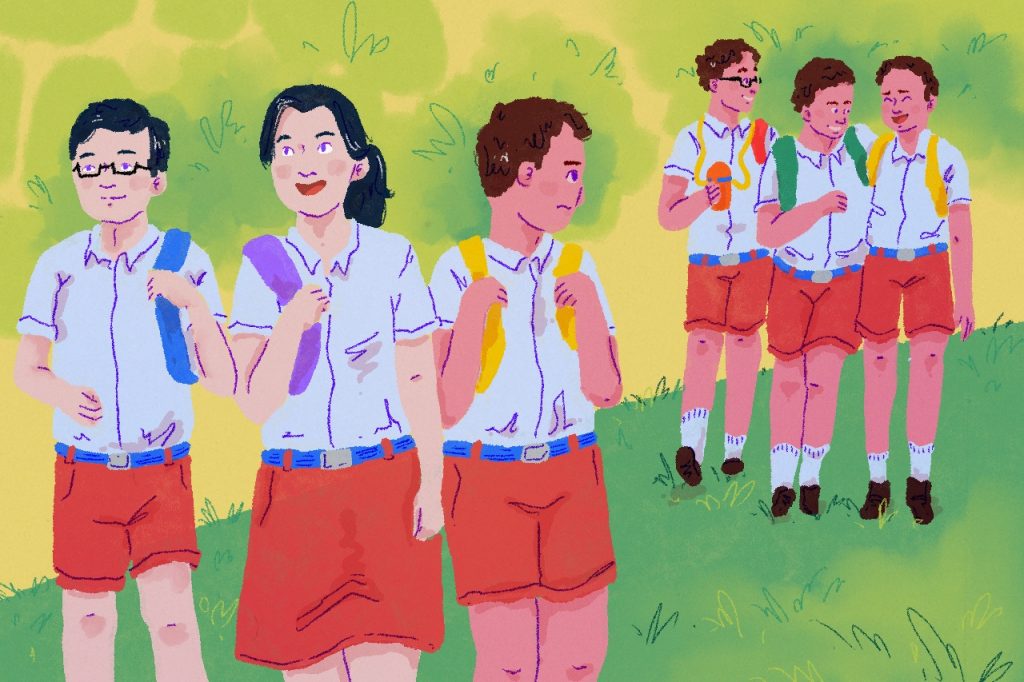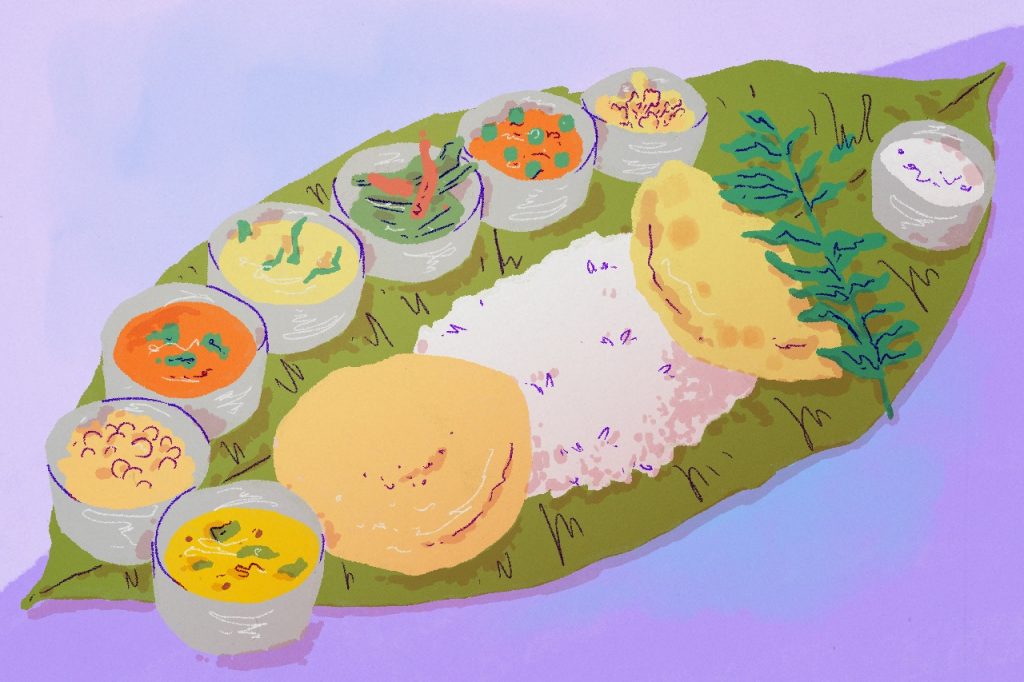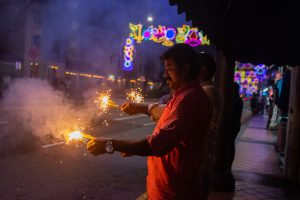Eons ago, when I was in secondary school, a woman walked into my classroom looking for a “Shawn”.
“Which Shawn? This one or the Tamilian?” my teacher replied, pointing first at my classmate then me, after which the whole class roared with laughter.
I felt like I lost consciousness for a few seconds and missed the punchline.
The teacher’s description was accurate—half-Tamilian and half-Malayali, to be precise—but I couldn’t see what was so funny about it.
The woman later realised that she was in the wrong class, which meant that me getting laughed at for simply being Indian had been doubly unnecessary.
Over the years, I and many of my Malay and Indian classmates have been subjected to similar experiences, some casual and seemingly jokey, others less so. Often, I would laugh off these microaggressions, thinking they’re things I just have to learn to live with.
Gradually, racists taunts and “jokes” that merely stung at first eventually found their way into my psyche, slowly changing the way I behaved.
Shedding my Indian-ness
At some point, I started to hate my own race.
My Indian culture became like a bad reputation I had to shake off. I mostly hung out with kids of other races for fear of being labelled “Indian Indian”.
I viewed my parents and grandparents’ traditions as a curse. Scoffing at Bollywood movies became a hobby of mine, but Indian food remained, well, tasty, because even a self-loathing Indian can’t deny the gustatory delights of Indian cuisine.
Still, I had scrubbed myself clean of my Indian ethnicity.
I didn’t do these things intentionally, of course—they were behaviours that resulted from a belief I had unknowingly internalised. I only realised this later on in life.

When I first met my wife in 2016 after several meandering conversations on Tinder, she noticed something strange about the way I spoke.
“Why do you have an American accent?” she asked.
“Oh, I do?” I answered, completely cognizant of the fact that I had altered my inflexions and intonations to sound more like the TV characters I had grown up with.
Nothing seemed odd about adopting an American accent despite the fact that I had lived as an Indian in Singapore my entire life.
So when my wife—who was born and raised in India—observed this peculiarity, she seemed puzzled to say the least.
She prodded further and I evaded her questions at first, but as I started to examine this seemingly harmless affectation, I discovered that a much deeper insecurity lay at the heart of it.
My idiosyncratic brand of racial insecurity, I believe, was the result of having grown up as a minority, all while dealing with a colonial hangover.
Colonialisation & learning to hate your roots
When British imperialists landed on Indian shores and snatched control of my forefathers’ land, they imposed their way of life on natives, propagating the insidious belief that we were inferior in every way: blood, language, and culture.
In their minds, they had generously come to enlighten the ignorant.

And they weren’t subtle about it either. Here’s what Thomas Macaulay—famous colonialist and world-renowned dingbat—said about the anglicisation of Indians:
“We must at present do our best to form a class who may be interpreters between us and the millions whom we govern; a class of persons, Indian in blood and colour, but English in taste, in opinions, in morals, and in intellect. To that class we may leave it to refine the vernacular dialects of the country, to enrich those dialects with terms of science borrowed from the Western nomenclature, and to render them by degrees fit vehicles for conveying knowledge to the great mass of the population.”
And so the seed of ethnic self-hatred was planted in our minds. It completely took hold of some Indians—especially those who moved abroad—and the belief has trickled down the generations.
200 years later, the colonisers might have left our lands, but our minds remained colonised.
Colonial mentality—best documented in Filipino Americans—is a form of internalized oppression that conditions colonized people to believe that their ethnic or cultural identity is inferior to Western culture or whiteness.
Those with this internalized oppression constantly strive to be more westernized, in the process learning to hate their indigenous roots.
Take Sir Mohan Lal, the Indian protagonist in Khuswant Singh’s short story “Karma”. He adopted the language, manners, and attitudes of the British upper classes, hoping to avoid the inferiority label that had been slapped on so many of his fellow citizens. He even made his wife sit in the third-class carriage of a train while he sat first class because it was degrading to be associated with her. At the end of the story, Mr Lal was flung out of the train by two British soldiers who punched him and called him the N-word.
Many Indians like myself may not have directly experienced this colonialism but felt its effects through cultural norms, such as the learned instinct to privilege whiteness.
This may explain why skin-lightening creams have grown in popularity as Indians across the globe with “dusky” complexions rub them into their faces in order to look less like themselves every day — I used to do this too — and why some of our parents and grandparents tell us not to stay in the sun too long lest we become dark.
Effects of cultural amnesia
Some Asians, like me, also fake their accents to sound more like the Brits, Americans, or the racial majority in their country.
On top of this colonial mentality, I was also a minority, which as history and recent events will tell you, isn’t great for self-esteem.

Growing up in Singapore, I always took it as a given that Indians were not just inferior to white people, but to Chinese Singaporeans as well because of the racism we faced in schools, no matter how casual and playful some people claim it to be.
That is not to say that minorities here can’t be prejudiced towards Chinese Singaporeans, but racial abuse against minorities cuts deeper because it’s been sharpened by everyday microaggressions.
This negative sense of self, coupled with the cultural amnesia brought on by colonialism, caused an identity crisis.
What I failed to understand at the time—a realisation that often escapes adolescents trying to fit in —was that this feeling of insecurity had nothing to do with the perceived inferiority of my race. It’s just a side effect of being a minority.
One person who seems to share my experience—of living as a minority while experiencing colonial mentality—is Ashley M. Decena, a Filipino American who works as a social worker in the US.
Here’s what she said in her thesis on identity and colonial mentality in Filipino Americans:
“I grew up thinking my brown skin was not beautiful, and that it was not okay to get darker. I wanted to assimilate to white culture. I lightened my hair. I did not have people that looked like me outside of family. I was glad I did not have a Filipino accent, and I judged others who did. The strong Filipino food smell in my grandma’s house was embarrassing, especially when my white friends would visit. I grew up with these notions, but now understand that they did not originate within me, but came from somewhere else. I experienced colonial mentality.”
Like Sir Mohan Lal and Ashley, I had adopted the accents and cultures of other communities in an attempt to avoid that same inferiority label and ended up degrading myself in the process.
This may also explain why I too used to harbour some xenophobic sentiments towards Indians here who came from India because they represented concentrated versions of the parts of myself that I hated.
Unlearning biases & embracing self
But I always felt like an imposter, and keeping up the charade, even in my own mind, was tiring.
My wife’s seemingly innocuous questions about my fake accent sent me on a journey of self-examination and self-discovery, where I slowly unlearned my biases and peeled away one by one the layers of pretension I had artificially created over the years.
Seeing other minorities comfortable in their skin also gave me the confidence to shed this westernized persona.
In dating my wife and hanging out with other Indians, I felt a new freedom. Freedom to be me. Freedom to speak without inhibition, even if words leave my mouth with an Indian twang.
I dropped my American accent, or rather, stopped affecting one, started taking an interest in my own culture, and now openly speak about my affinity for all things Indian, whether it be films, literature, or the food.

Now that I can be myself completely, I feel more comfortable in social settings and no longer feel the need to modulate the way I speak and behave.
Fairness has become something I now seek only in the way I treat others, not in my skin.
Examining biases against my own race also taught me to be wary of prejudice in general; I’m now more suspicious of the preconceived notions I form of strangers.
Being prejudiced is a very human thing, but I believe that recognising and questioning these biases will not only help you transcend conventional thinking but make it easier to be yourself as well.






